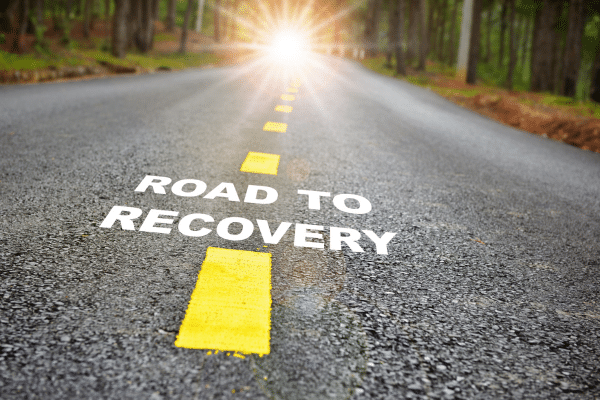Recovering from surgery is a critical period that demands careful attention to ensure a smooth and safe healing process. This period involves more than just following doctor’s orders; it’s about understanding and respecting the body’s limits and needs. This blog post aims to shed light on several crucial activities that should be avoided during post-surgery recovery. These guidelines are not just recommendations; they are pivotal steps to avoid complications, hasten recovery, and ensure overall well-being. Readers will find practical advice on how to navigate this challenging phase with confidence and care.
Contents
- 1 Refrain From Strenuous Exercise
- 2 Avoid Skipping Medication Or Doctor’s Appointments
- 3 Steer Clear Of Certain Foods And Alcohol
- 4 Avoid Stress And Overexertion
- 5 Do Not Ignore Pain Or Unusual Symptoms
- 6 Avoid Lifting Heavy Things
- 7 Resist The Urge To Rush The Recovery Process
- 8 Avoid Neglecting Personal Hygiene
- 9 The Bottom Line
Refrain From Strenuous Exercise

Engaging in high-impact or strenuous exercise during the post-surgery recovery period can be detrimental. The body, still healing from the surgery, is not prepared to handle the stress of vigorous activities. Doing so can lead to complications like swelling, tearing of stitches, or even more severe internal issues. It’s crucial to understand that while staying active is important, the type and intensity of physical activity must be adjusted to suit the body’s current state.
However, this doesn’t mean one should lead a completely sedentary lifestyle during recovery. Low-impact exercises, such as walking or gentle stretching, can be beneficial. They help in maintaining muscle tone, improving circulation, and enhancing overall mood and well-being. Consulting with a healthcare provider to create a safe and effective exercise plan is always advisable. This plan should focus on gradually building up activity levels without putting undue stress on the body.
Avoid Skipping Medication Or Doctor’s Appointments

Adherence to prescribed medication schedules and attending follow-up appointments is vital in the post-surgery recovery process. Medications play a crucial role in managing pain, preventing infection, and ensuring a smooth recovery. Skipping doses or altering the schedule can lead to unnecessary complications, prolonged recovery time, or even adverse reactions. Therefore, understanding and following the prescribed medication regimen is a non-negotiable aspect of post-surgery care.
Similarly, follow-up appointments are not merely a formality but a critical component of post-operative care. These appointments allow healthcare providers to monitor healing progress, address any concerns, and make necessary adjustments to the treatment plan. Missing these appointments can lead to overlooked complications or delayed interventions, ultimately hindering the healing process. Patients are encouraged to maintain a calendar or set reminders to ensure they keep up with their medical appointments.
Steer Clear Of Certain Foods And Alcohol

Consumption of certain foods and alcohol can significantly impact the healing process after surgery. Foods high in sugar, salt, and saturated fats can increase inflammation, slow down healing, and may even affect the efficacy of medications. Alcohol, on the other hand, can interfere with medication, increase the risk of bleeding, and impair the body’s natural healing process. Awareness of these dietary impacts is crucial for anyone recovering from surgery.
Opting for a balanced diet rich in proteins, vitamins, and minerals supports the body’s healing mechanism. Lean proteins, whole grains, fruits, and vegetables should be staples in the recovery diet. Staying hydrated is equally important, as it aids in the healing process and ensures the effective functioning of the body. Consulting with a nutritionist or a healthcare provider for a personalized recovery diet plan can be highly beneficial.
Avoid Stress And Overexertion

Stress and mental exertion can have a negative impact on physical recovery. High stress levels can lead to increased blood pressure and heart rate, which are not conducive to healing. Stress can also impact sleep quality, further delaying the body’s natural recovery processes. Thus, maintaining a calm and stress-free environment is essential for a smooth recovery.
Employing stress management techniques such as deep breathing exercises, meditation, or light reading can be highly beneficial. Establishing a comfortable and quiet recovery space, engaging in light hobbies, and ensuring regular, restful sleep can also contribute to a stress-free recovery. Additionally, seeking support from friends, family, or professional counselors can provide emotional relief and aid in the overall healing process.
Do Not Ignore Pain Or Unusual Symptoms

Pain and unusual symptoms should never be ignored during the recovery period. While some discomfort is expected after surgery, experiencing severe pain or noticing unusual symptoms can be a sign of complications. It’s paramount to monitor one’s condition closely and report any concerning changes to a healthcare provider immediately. This proactive approach can help in addressing issues before they escalate.
Open communication with healthcare providers about the recovery process is encouraged. Describing the pain accurately, noting any swelling, redness, or discharge, and reporting changes in mobility or function can provide crucial information for proper care. Timely intervention based on these observations can make a significant difference in the recovery outcome.
Avoid Lifting Heavy Things

Lifting heavy objects after surgery is a risk that should be avoided at all costs. The strain it puts on the body can not only cause immediate pain and discomfort but also lead to more severe complications like reopened incisions or internal bleeding. Especially in surgeries involving the abdomen, chest, or back, the risks are significantly heightened. Understanding these dangers is crucial for anyone in the recovery phase.
To manage daily tasks that involve lifting, planning and seeking help is essential. For grocery shopping, consider online delivery services or asking friends and family for assistance. In the home, reorganize living spaces temporarily to ensure that frequently used items are within easy reach. This approach not only reduces the risk of injury but also promotes a more stress-free recovery environment.
Resist The Urge To Rush The Recovery Process

Rushing the recovery process can lead to setbacks and complications. Every surgical procedure has a recommended recovery timeline, which is designed to allow the body to heal properly. Attempting to resume normal activities or returning to work too soon can be counterproductive, leading to prolonged recovery or even re-injury.
Patients should follow the recovery timeline provided by their healthcare provider and understand that healing is a gradual process. Setting realistic expectations and celebrating small progress milestones can help in maintaining a positive outlook during recovery. Patience is key, and respecting the body’s limits during this time is essential for a full and successful recovery.
Avoid Neglecting Personal Hygiene

Maintaining personal hygiene is crucial for preventing infections and promoting healing. Post-surgery, the body is more susceptible to infections, making hygiene practices more important than ever. However, depending on the type of surgery, certain hygiene tasks can be challenging. Thus, it’s important to find safe and effective ways to maintain cleanliness without compromising the surgical site.
Adapting hygiene practices to accommodate limited mobility or restrictions is necessary. This may include using sponge baths, no-rinse cleansing products, or seeking assistance for tasks such as bathing or changing dressings. Keeping the surgical area clean and dry, as advised by the healthcare provider, is paramount in preventing infection and ensuring a smooth recovery.
The Bottom Line
The journey to recovery after surgery can be challenging, but by avoiding certain activities and following professional advice, the process can be smoother and safer. Understanding the risks and adapting lifestyles temporarily is key to a successful recovery. It’s crucial to remember that each step taken in accordance with medical guidance brings one closer to restored health and well-being. This guide aims to empower individuals with the knowledge needed to navigate their recovery confidently, ensuring they make informed decisions that prioritize their health every step of the way.


